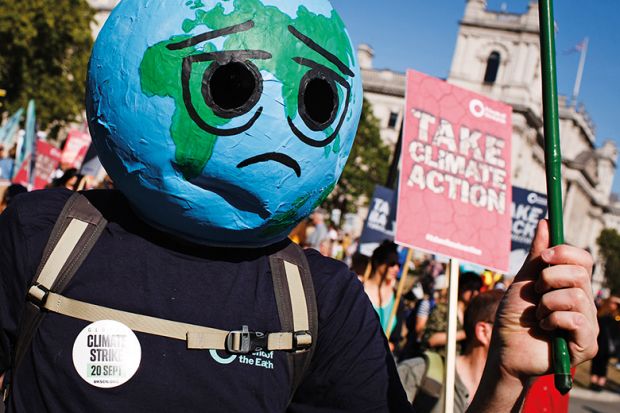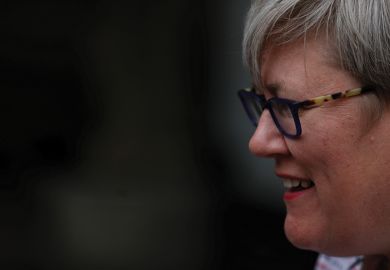Welcome to a new decade: fresh and sparkly, with a spring in its step and a song in its heart.
Or perhaps not. The truth, sad to say, is that the world is in a worse state in 2020 than it was in 2010, which is saying something given how close the global economy came to meltdown at the end of the noughties.
Today, it is not so much the economy as the world itself that seems at risk of combusting.
We live in a time of overheated politics, trade wars and military flare-ups. Populism and protectionism are nourished by economic malaise, fake news and the refugee crisis.
And, most important of all, we are at a moment of truth for the climate crisis – which is itself a factor in many of the aforementioned afflictions, and our greatest challenge in the decade ahead.
In our features pages this week, we interview Rachel Kyte, dean of the Fletcher School of international relations at Tufts University, who previously held a series of roles focusing on the climate crisis, including at the World Bank and United Nations.
“If you’re interviewing me in 2029 and we haven’t got more traction than we have today on decarbonising our economy then we are in big trouble,” she told me when I sat down with her in London.
Kyte is worried, but she is not a defeatist. And she has chosen to move into an academic leadership role because she sees it as being fundamental to achieving the change required in the decade ahead.
So, with apologies to those contributors who have made other suggestions in our feature on new year’s resolutions this week, the only new decade’s resolution to propose for our universities is that they join her in making this the top priority across everything they do.
The good news is that, in Kyte’s assessment, what is needed is a change of perspective and emphasis rather than junking everything and starting again.
Much of this will appeal to academics, and be things that universities should be doing anyway: focusing tirelessly on collaboration, on diversity of thought, and on deep understanding of the impact and implications of our actions on the world.
It will require rethinking and reforming what and how to teach, and putting faith in students, who Kyte sees as being from a generation that is sufficiently different from those who have caused many of the world’s problems to give cause for optimism.
Looking back to the start of the last decade, when debate about climate change was still conducted in terms of fact or fiction (the Climategate saga, involving hacked emails from the Climatic Research Centre at the University of East Anglia, took place in 2009), Kyte points to the pivotal role played by science in securing political commitment to tackle carbon emissions in the Paris Agreement of 2015.
However, she said, “the impacts of climate change are hitting earlier and more severely than we hoped, which means that now, other disciplines have to catch up”.
“There’s a reason to have a good hard look at the economic canon, the financial canon, the business canon, and say, look – this isn’t a blip, this is now the world we live in, so what are we teaching?
“No matter your discipline, this is now the future, and it is a challenge to the whole of the academy.” This does not have to mean restructuring everything, but “putting a lens on the way that you look at a field of study or a discipline”.
Political fragmentation undoubtedly makes this more challenging, but it also puts even more of the world’s hopes on to the shoulders of academia, as an enduring international endeavour.
“I grew up in a world which in some ways was a little cosy,” Kyte says. “The relative peacefulness of western Europe in the years after the Second World War – was it the norm or was it just an episode? Time will tell, but one of the reasons I stepped out of the international merry-go-round to join Fletcher for a few years was that I wanted to be around young people, because I think this generation is different and sees the world differently, and we need more of them in play earlier.”
Putting her faith in youth, diversity, interdisciplinarity and collaboration, she told me: “I think it is wonderful that the new prime minister of Finland is 34, it’s not surprising that Jacinda Ardern [the prime minister of New Zealand] is in her late thirties, that Mette Frederiksen [Denmark’s prime minister] is 42. And it’s not surprising to me either that they are all women.”
Register to continue
Why register?
- Registration is free and only takes a moment
- Once registered, you can read 3 articles a month
- Sign up for our newsletter
Subscribe
Or subscribe for unlimited access to:
- Unlimited access to news, views, insights & reviews
- Digital editions
- Digital access to THE’s university and college rankings analysis
Already registered or a current subscriber?


